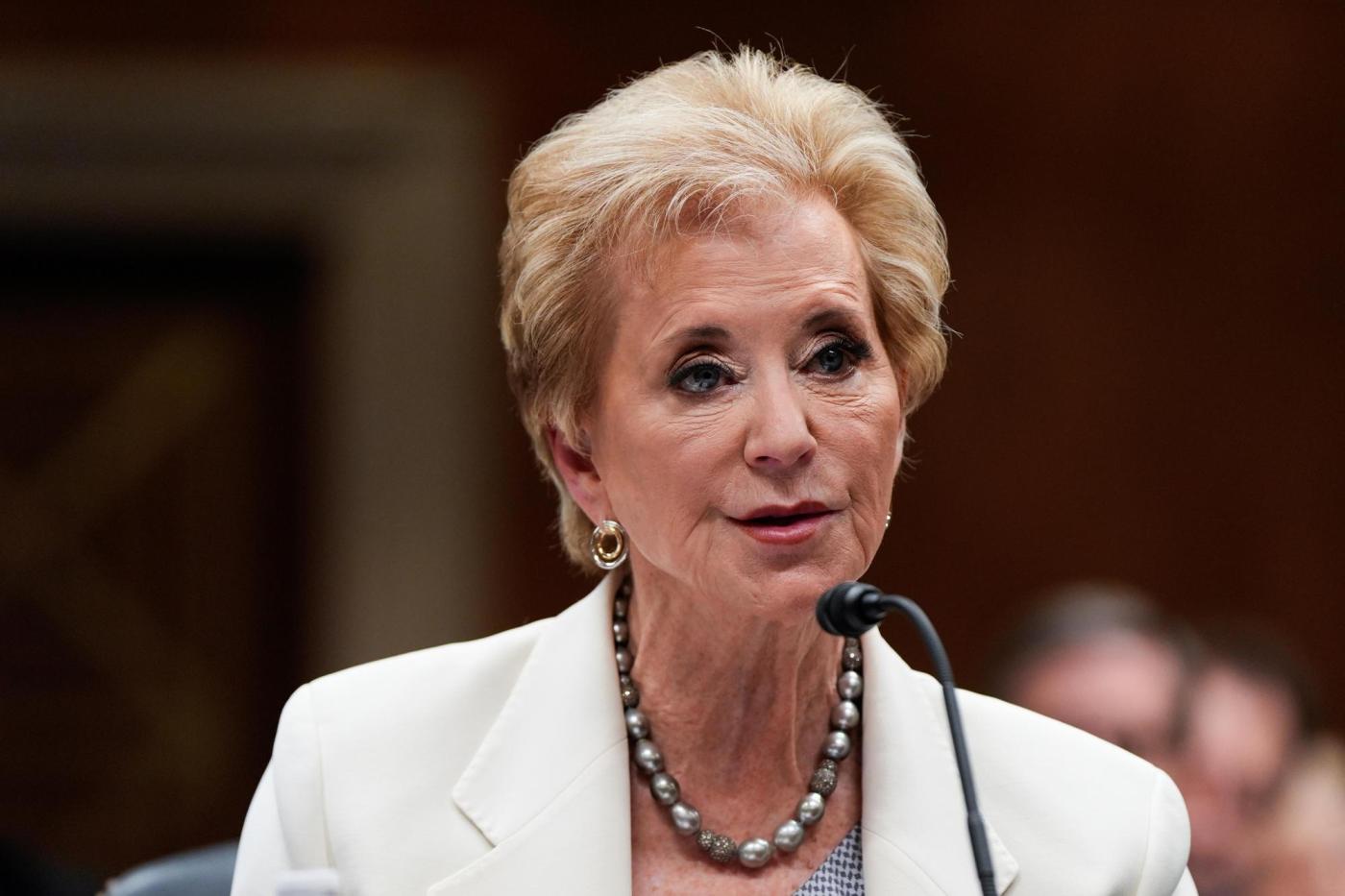UPDATE: In a shocking move following the recent government shutdown, the Trump administration is advancing plans to dismantle the U.S. Department of Education. U.S. Secretary of Education Linda McMahon argued that the 43-day shutdown demonstrated the department’s unnecessity, claiming families faced no disruptions in education services.
McMahon, in an opinion piece for USA Today, stated, “Every family saw how unnecessary the department is,” as schools continued to operate without federal oversight. The administration is now transitioning key responsibilities, including Title I federal funding and grants for low-income schools, to other government agencies, edging closer to eliminating the department entirely.
Just days after the shutdown ended, McMahon announced six agreements to transfer education responsibilities to the State Department, Department of the Interior, Department of Labor, and Health and Human Services. These responsibilities encompass critical programs aimed at supporting disadvantaged students and improving educational outcomes nationwide.
However, education experts are raising alarms. Patrick McGuinn, a professor at Drew University, emphasized that the Department of Education was established in 1979 to combat inefficiencies in the decentralized education system, stating, “Bringing all of these programs under one department actually increases efficiency.”
Concerns are mounting over the potential ramifications of this transition. The shutdown saw nearly 87% of the Department’s 2,447 employees furloughed, halting enforcement of civil rights laws and leaving a backlog of over 25,000 cases pending resolution. Educational advocates reported severe disruptions to federal programs, including Head Start, which supports over half a million low-income children. Many programs are now at risk of closure due to funding shortages.
Nora Gordon, an economist at Georgetown University, warned that the federal role in education is essential for maintaining equitable funding across states. “Investing in education is crucial for the future of democracy,” she stated, highlighting the importance of federal oversight in ensuring proper fund allocation and compliance with educational standards.
Despite McMahon’s claims that dismantling the department would not impact federal support for education, experts argue that such a move could exacerbate inequities and disrupt critical services. “I’m very concerned about the equity implications,” McGuinn noted, predicting that the transition could lead to delays in funding and a loss of institutional knowledge.
As the Trump administration pushes forward with these changes, the educational landscape could face significant challenges, affecting millions of students nationwide. Parents, educators, and policymakers are urged to stay informed as developments unfold, with the ongoing implications of this potential dismantling looming large over the future of education in America.
This urgent situation demands immediate attention, as the effects ripple through the educational system. The administration’s plan raises fundamental questions about the role of federal oversight and its impact on student success and equity moving forward.
